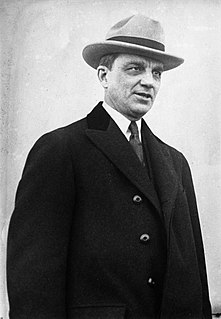A Quote by Arancha Gonzalez
ITC works to help firms in poor countries become more competitive and overcome the barriers that are keeping their goods and services out of international markets.
Related Quotes
A considerable proportion of the developed world's prosperity rests on paying the lowest possible prices for the poor countries' primary products and on exporting high-cost capital and finished goods to those countries. Continuation of this kind of prosperity requires continuation of the relative gap between developed and underdeveloped countries - it means keeping poor people poor. Increasingly, the impoverished masses are understanding that the prosperity of the developed countries and of the privileged minorities in their own countries is founded on their poverty.
The essence and the glory of the free market is that individual firms and businesses, competing on the market, provide an ever-changing orchestration of efficient and progressive goods and services: continually improving products and markets, advancing technology, cutting costs, and meeting changing consumer demands as swiftly and as efficiently as possible.
We wake up to find the whole world building competitive trade barriers, just as we found it a few years ago building competitive armaments. We are trying to reduce armaments to preserve the world's solvency. We shall have to reduce competitive trade barriers to preserve the world's sanity. As between the two, trade barriers are more destructive than armaments and more threatening to the peace of the world.
Sustainable production and consumption matter immensely to the people I meet every day as head of the International Trade Centre, which works with small and medium-sized enterprises (SMEs) to help them boost growth and job creation by improving their competitiveness and connecting to international markets.
Jobs in the public sector are increasingly dependent on technology, and more and more government services are available online in developed and developing countries. Women who have ICT skills can help develop and deliver these services, even in places where the sexes are traditionally kept separate.
































